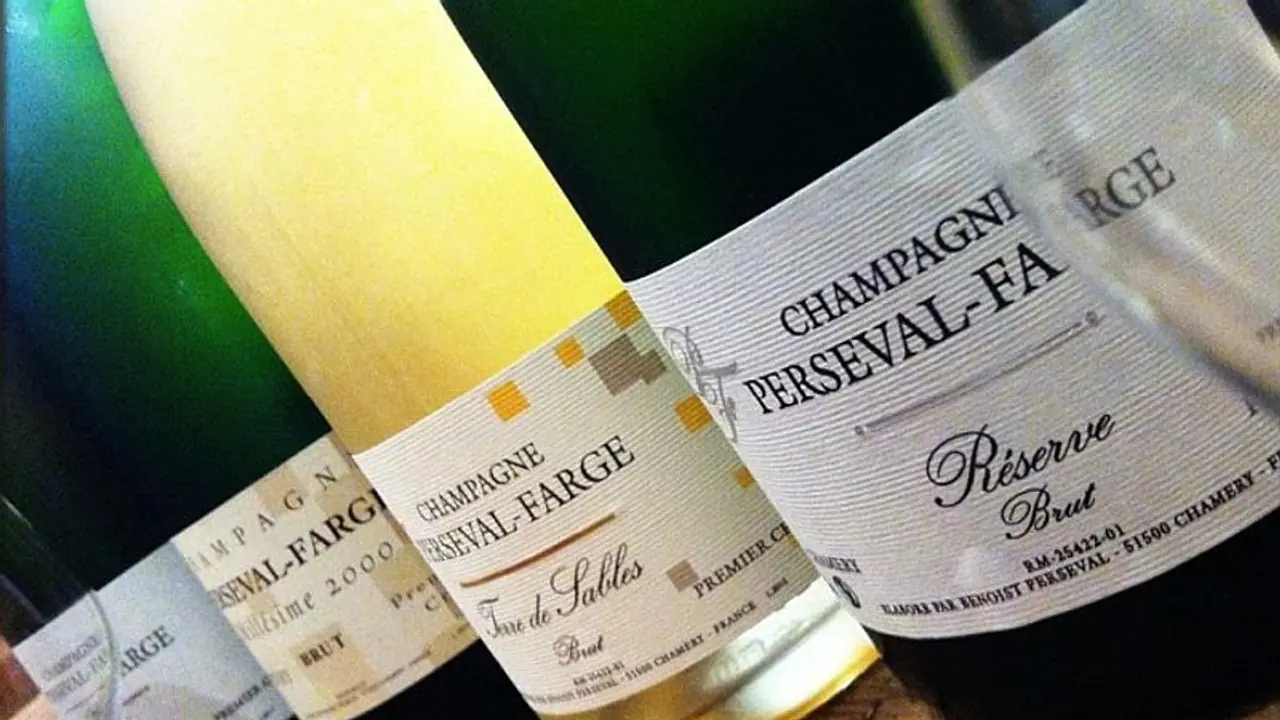Russian President Vladimir Putin recently signed a law that reserves the name champagne for Russian sparkling wine. This has prompted French champagne makers to put in place a blockade.
Russian President Vladimir Putin recently signed a law that reserves the name champagne for Russian sparkling wine. This has prompted French champagne makers to put in place a blockade.

French champagne-makers are fiercely jealous of the Appellation d'Origine Contrôlée, which is supposed to give them exclusive use of the word 'champagne' in countries that adhere to the Lisbon Agreement on distinctive geographical indications.
However, Russia is not a signatory, and Putin signed a law last week that will not allow the use of the Russian word for champagne on imported bottles.
French producers can still use the word but will have to put 'sparkling wine' in Cyrillic on the back of each bottle, which is incredibly infuriating for the brands as they claim their champagne is distinct.
France's Champagne Committee co-presidents Maxime Toubart, and Jean-Marie Barillere said that denying the natives of the Champagne region the right to use the name 'champagne' in Cyrillic is scandalous.
Russia is 15th in the world in terms of the number of champagne bottles it imports and is an important country, as the Russians tend to buy the most expensive bottles.
The Champagne Committee, which groups grape growers and producers in France's Champagne region, has called upon diplomats to contest the 'unacceptable law'. They urged their members to halt all shipments to Russia until further notice.
Moet Hennessy, owned by LVMH, has already said that it would comply with the new law and resume exports of its brand that include Dom Perignon, Moet & Chandon and others as soon as possible.
The Champagne Committee said the new Russian law could impact over 20 years of bilateral talks between the European Union and Russia on the protection of AOCs.
The Committee slammed Russia for not informing producers in advance of the change and said that it is determined to engage with the Russian authorities to obtain the exclusive right to the champagne name.
The 'Sovetskoye Shampanskoye' was launched in 1937 under Stalin in order to make the drink more accessible to the proletariat. And similarly, Soviet republics created their cognac called 'Konyak', which were mass-produced and sold at affordable prices but were branded as being pale imitations of the real French products.
After Soviet Union's collapse, the 'Shampanskoye' label remained, which created problems for Russia, especially after it joined the WTO in 2012. It is still synonymous with a festive yet cheap drink.
The association of Russian makers of sparkling wines say that the total output can reach 220 million bottles per year. Most sparkling winemakers in Russia use a very different method of production from the one used in France.
However, the French winemakers say the right to label a product is restricted to those made in the region and champagne makers have to follow strict production methods. It is a name, they say, they have been fighting to protect since 1843.
The battle for them has not just been limited to knock off sparkling wine but also a whole range of unrelated products that try to use champagne's reputation, like cigarettes and a YSL perfume.
The most recent case they won was against German supermarket Aldi over a champagne-flavoured sorbet. The litigation was not because it violated the AOC but because it was proved untruthful as it did not taste like champagne.
Trade Minister Franck Riester said on Twitter, "We are following closely the implications of this new Russian wine law together," and it is a battle many in France will continue to fight "without fail".
